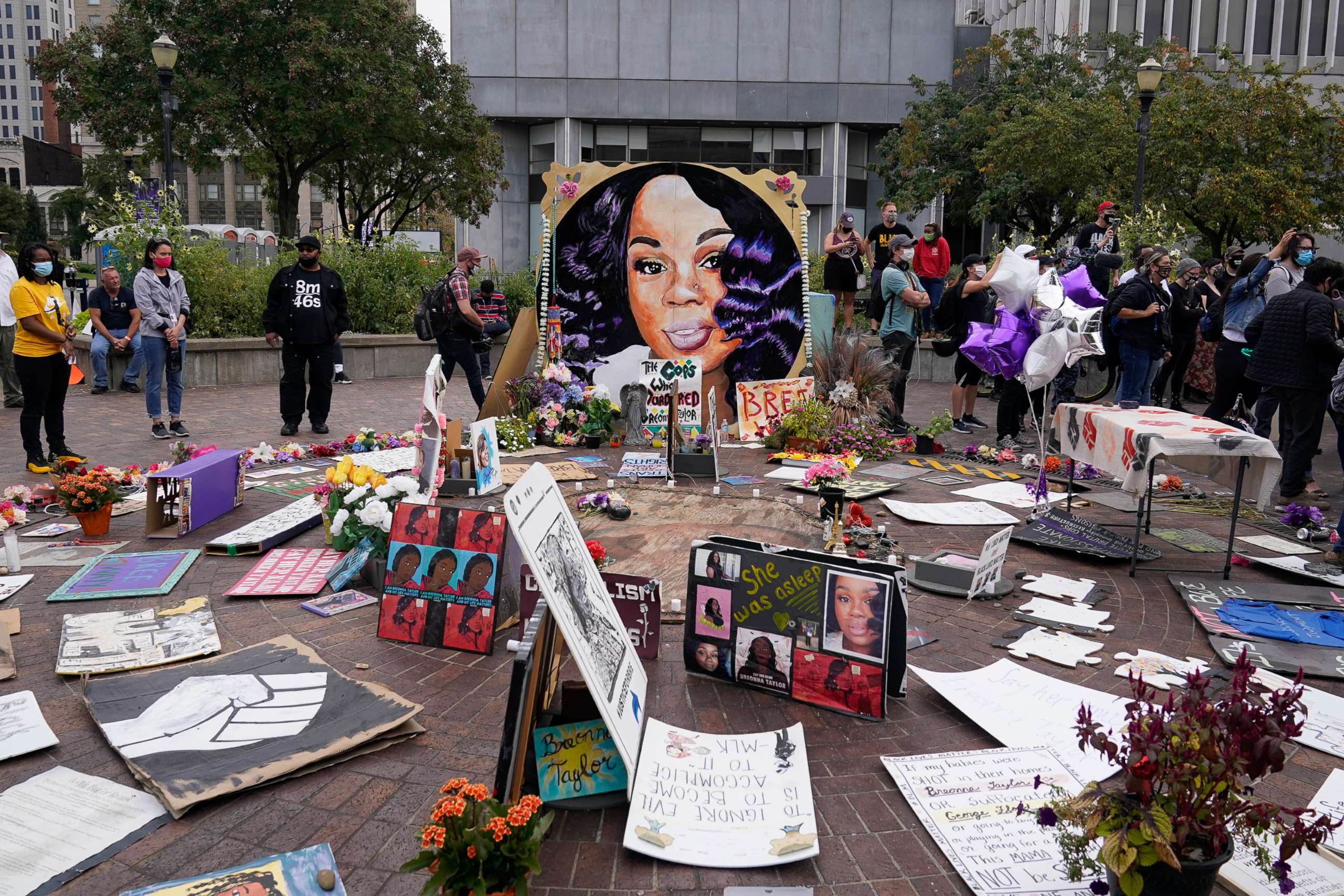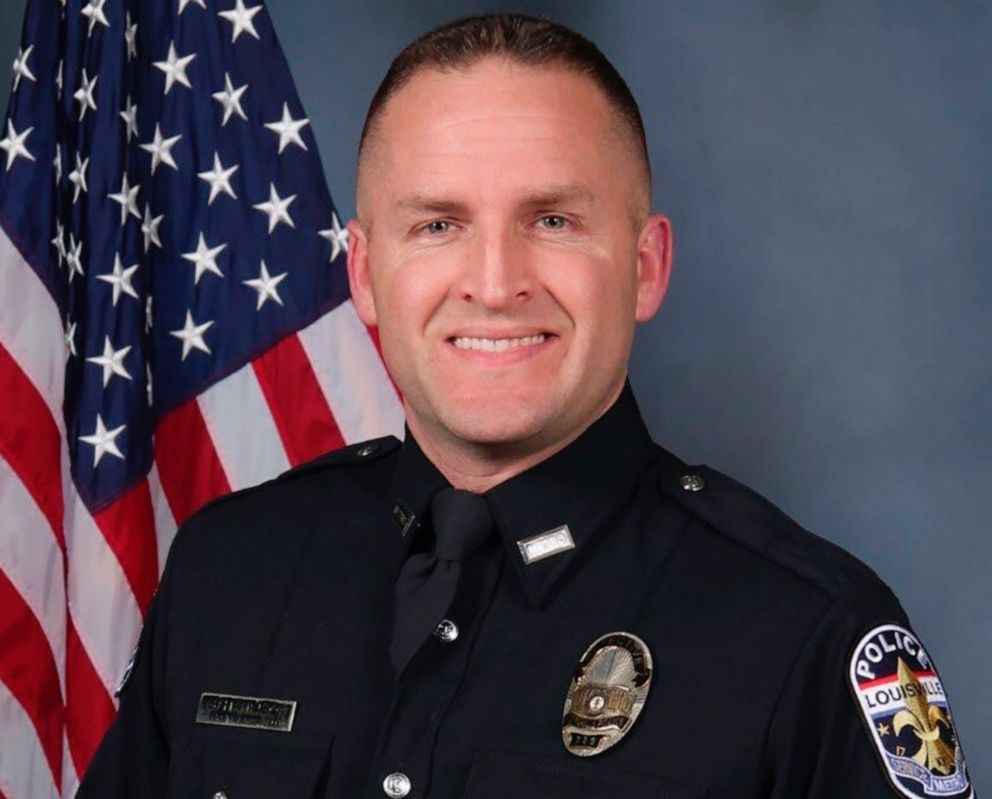Why the wanton endangerment charge in Breonna Taylor's case is about her neighbors and not her
Ex-officer Brett Hankison was charged with three counts of wanton endangerment.
More than six months after Breonna Taylor's death, one officer was charged with three counts of wanton endangerment in the first degree. But none of the counts were for the shooting death of Taylor in her home.
Kentucky Attorney General Daniel Cameron said Wednesday that the charges against former officer Brett Hankison were for shooting into a neighboring apartment, where there was a man, pregnant woman and child -- hence the three counts.
Hankison was later fired for his role in the March 13 incident in Louisville, Kentucky. According to his termination letter that was shared with local reporters, Hankison violated police department procedure when he "wantonly and blindly" fired 10 rounds into Taylor's apartment while executing the warrant.
"Because the police department had already fired him for firing wantonly his weapon, I think that was kind of the base here," Dan Abrams, chief legal affairs anchor for ABC News, said on ABC News Live Wednesday.
It was less certain if there would be additional charges, such as reckless homicide.
"I definitely think that folks were hoping and expecting that there might be some degree of homicide charges brought against the officers," Heather Gatnarek, staff attorney with the ACLU of Kentucky, told ABC News. "I think the fact that none of them were brought against any of the officers is why folks have felt so unheard."

None of Hankison's shots hit Taylor, Cameron said. Two other officers involved in the incident have not been charged. Cameron said Wednesday that shots fired by Jonathan Mattingly (who shot six rounds after being shot in the leg by Breonna's boyfriend, Kenneth Walker) and by Myles Cosgrove (who fired 16 shots) "were justified in their return of deadly fire after being fired upon." The two officers have not been fired and are on administrative reassignment.
Grand jury proceedings are confidential, Gatnarek noted, so it's "impossible for us to say exactly what happened. But I can speculate that the grand jury felt that the police who shot into Breonna Taylor's apartment were in some way justified in that action," she said. "That is probably going to be due to the fact that they reported having been shot at by Breonna Taylor's boyfriend."
A search warrant led officers to Taylor's residence on March 13, which may also have played a part in the grand jury's decision.
"It seems that the grand jury believed that ... they had a legal right to be there," Abrams said. "And when they were fired upon, they responded."
In Kentucky, first-degree wanton endangerment is defined as: "A person is guilty of wanton endangerment in the first degree when, under circumstances manifesting extreme indifference to the value of human life, he wantonly engages in conduct which creates a substantial danger of death or serious physical injury to another person."

If convicted, Hankison could serve one to five years per count. The sentences could be served simultaneously, which is typical.
Legal experts told ABC News that it is unlikely other criminal charges will be brought over Taylor's death. Wednesday's decision is also unappealable, said Blanche Bong Cook, an associate professor of law in the J. David Rosenberg College of Law at the University of Kentucky.
"The Kentucky attorney general is saying that the grand jury did not find enough evidence rising to the occasion of homicide, and that is not appealable anywhere else," Cook said during a Zoom call with reporters.
The federal government is also currently investigating whether Taylor's civil rights were violated during the incident. Cook noted it is difficult to meet the standard of proof for these types of charges.
The grand jury's announcement came after Taylor's family reached a $12 million settlement last week with the city of Louisville in a wrongful-death lawsuit.
ABC News' Lauren Pearle contributed to this report.
This report was featured in the Thursday, Sept. 24, 2020, episode of “Start Here,” ABC News’ daily news podcast.
"Start Here" offers a straightforward look at the day's top stories in 20 minutes. Listen for free every weekday on Apple Podcasts, Google Podcasts, Spotify, the ABC News app or wherever you get your podcasts.




